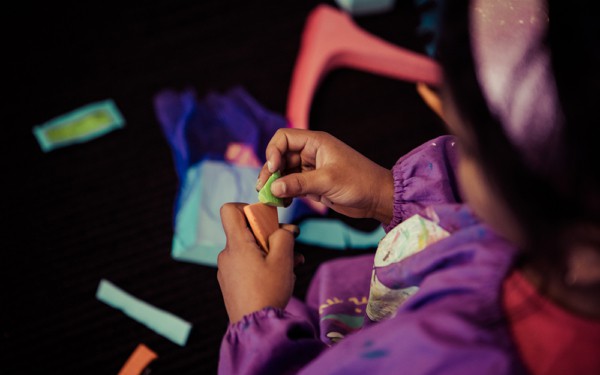
CREATIVE NZ – CREATIVITY AN EVEN MORE ESSENTIAL SKILL FOR THE FUTURE
by Stephen Wainwright
Chief Executive – Pou Whakahaere
Benjamin Franklin, in 1789 wrote to his friend Jean-Baptiste Leroy that “in this world nothing can be said to be certain, except death and taxes”.
This is a famous line, and fully alert to the fact that BF was a genius, I feel this quotation would have been even more famous if he had said “…death and taxes and change”. Salient to this is the fact that in 1789 the French revolution was underway so change was a big topic of conversation.
In 2017 the social and workforce impacts resulting from the convergence of robotics, artificial intelligence and the Internet are much in focus. Change is happening quickly and deeply. As a consequence it is fair to suggest that the working lives of people born in 2000 will be profoundly different from people born only 30 years earlier.
We generally have a sense of this change, as it has begun.
Asking the right question
A constructive question we might ask is: What skills should we be encouraging in our citizens and in our nation so we can succeed?
Luckily, curious people are already looking closely at this question and have some pointers. The World Economic Forum published the ten skills you need to thrive in the fourth industrial revolution which investigates employment, skills and workforce strategy for the future.
The consistent news is that complex problem solving remains the most important skill between the 2015 and 2020 surveys. This biggest mover in the survey, from tenth to third place is creativity.
As the forum explains, creativity will become one of the top three skills workers need to benefit from the avalanche of new products, new technologies and new ways of working.
Creativity was the tenth on the highest rank skill in 2015, in only five years it has leapt to number three.
So the acknowledgement that creative skills are central to a prosperous future is already a fact, being socialised by authoritative commentators internationally.
Closer to home
In New Zealand we welcome the efforts of organisations such as WeCreate who are advocating for the creative sector, and its social, cultural, educative and economic benefits.
At Creative New Zealand we are grateful that we have the mandate to support creative people and creative enterprises with public money to unfurl their imaginations and creative practices for broad benefit.
It has not always been easy to get systemic and significant attention to creativity which some may view as a ‘nice to have’. So it is reassuring that increasingly it looks like fostering creativity should less be seen as ‘peripheral’ and more as ‘central’ to two fundamental areas of interest to central and local government, communities, whanau and individuals everywhere:
- our national prosperity
- the skill set we equip our citizens with to prosper in the modern world
Creativity means the world to us, and this was similarly the view of Benjamin Franklin who said “to cease to think creatively is to cease to live”.
This blog is re-posted from Creative NZ with permission – Thank you Creative NZ! Creative New Zealand encourages, promotes and supports the arts in New Zealand for the benefit of all New Zealanders through funding, capabili